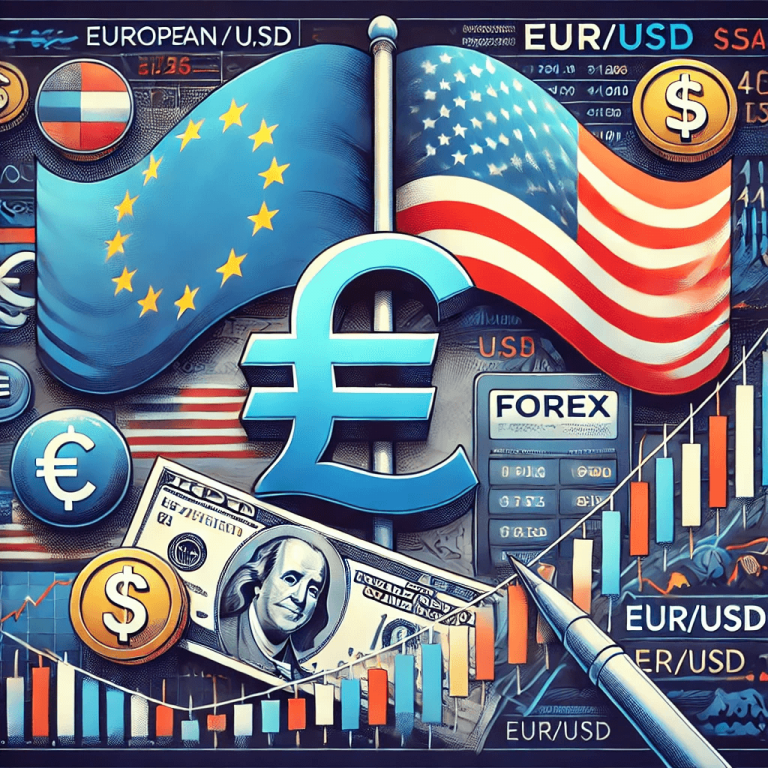Many traders begin their journey in the financial markets by searching for the “perfect strategy”. They often imagine an ideal system that generates risk-free profits, complete predictability, and flawless execution. However, such an approach is more myth than reality, and its consequences can be disastrous for progress in Forex trading.
Table of Contents
- The Myth of the Perfect Trading Strategy
- What Is the “Perfect Trading Strategy”?
- Why Is the Pursuit of Perfection Harmful?
- The Psychology of Perfectionism in Trading
- Why the Perfect Trading Strategy Is Unattainable?
- Flexibility and Adaptation in Strategy
- How to Strike a Balance Between the Pursuit of Perfection and Realism?
Key Information
- Perfect Trading Strategy is a myth that fails to account for the volatility of the Forex market.
- A realistic approach, based on flexibility and adaptation, is the key to success.
- Excessive perfectionism leads to decision paralysis and emotional mistakes.
- Risk analysis and continuous strategy adjustments help minimize losses.
The Myth of the Perfect Trading Strategy
The perfect trading strategy is an idea often cited by both novice and experienced investors. In reality, however, within the context of the Forex market’s volatility, there is no universal formula that guarantees constant profits.
What Is the “Perfect Trading Strategy”?
The so-called perfect strategy, according to common belief, is a system that allows for predicting market movements with accuracy, yielding steady and high returns. This implies the ideal use of technical analysis, fundamentals, and the avoidance of errors. However, in practice such an approach is unrealistic. The Forex market is volatile and unpredictable, and every tool or analysis has its limitations. In fact, no single strategy works uniformly under all conditions.

Why Is the Pursuit of Perfection Harmful?
Perfectionism in trading can lead to a trap marked by overthinking and a paralyzing fear of making mistakes. Traders in search of the “ideal” system often make decisions influenced by emotions such as fear or greed. In trying to eliminate every potential error, they lose discipline and begin making impulsive decisions. As a result, their outcomes may be worse than if they had simply adhered to a well-planned, flexible strategy. As one international analyst stated, “there is no system that can guarantee one hundred percent success in a volatile market” (Source: IMF, https://www.imf.org/).
| Factor | Impact |
|---|---|
| Technical Analysis | Moderate |
| Macroeconomic Events | High |
| Trader Emotions | Critical |
The Psychology of Perfectionism in Trading
Perfectionism in trading exerts a tremendous influence on a trader’s emotions. The pursuit of flawless results and the expectation that every decision leads to profit instill a fear of making mistakes. This mindset generates frustration and anxiety, especially in the face of inevitable failures in the financial markets. Traders who impose unrealistic expectations on themselves become increasingly stressed, which may prompt decisions driven by emotions, such as panic or impulsiveness.

The pressure imposed by the quest for perfection can lead to taking excessive risks. Fearing failure, traders might begin engaging in risky trades, attempting to “make up” for previous losses or recoup lost time. Consequently, this often results in greater losses than the strategy’s initial assumptions would suggest. Instead of operating according to plan, perfectionism prompts impulsive decisions driven by emotion rather than cold market analysis.
Why the Perfect Trading Strategy Is Unattainable?
Financial markets are dynamic and subject to constant change, making the discovery of an “ideal” strategy virtually impossible. Despite best efforts, no strategy can predict all the variables that influence the market. According to data from the International Monetary Fund, global market volatility can reach up to 25% during crisis periods (Source: IMF, https://www.imf.org/).
Market Volatility and Unpredictability
Financial markets are characterized by their dynamic and variable nature, influenced by numerous factors. Unfortunately, these factors cannot be fully incorporated into any single strategy, which makes creating a perfect system that consistently works impossible. The actions of other market participants—who rely on different analyses and emotions—can cause market conditions to change from one moment to the next. Additionally, macroeconomic events such as interest rate changes, political decisions, or sudden economic crises also impact the markets, yet they remain entirely unpredictable. According to data from the World Bank, global market reactions to economic crises can result in fluctuations reaching as high as 30% (Source: World Bank, https://www.worldbank.org/).
| Aspect | Perfect Strategy | Reality |
|---|---|---|
| Predictability | Constant | Variable |
| Risk | Minimal | High |
Which Approach, Instead of Perfection, Leads to Success in Trading?
Instead of pursuing an unrealistic perfection, the key to success in the Forex market lies in flexibility and the ability to adapt to changing market conditions. Only through such adaptability can risk be effectively managed and the traps that often lead to impulsive decision-making be avoided.
Flexibility and Adaptation in Strategy
A critical skill in trading is the ability to continuously adjust one’s strategy to evolving market conditions. Since financial markets are unpredictable, a strategy that worked in one period may prove inappropriate in another. Striking a balance between established principles and flexibility enables a more deliberate and informed response to changes. Flexibility does not mean abandoning the rules, but rather modifying them in response to new challenges.
| Element | Description |
|---|---|
| Risk Analysis | Systematic monitoring and adjustment of the strategy |
| Discipline | Adhering to established principles despite emotional influences |
| Regular Reviews | Updating the strategy based on changing market conditions |
How to Strike a Balance Between the Pursuit of Perfection and Realism?
In trading—where market volatility and unpredictability are everyday realities—it is crucial to achieve a balance between the pursuit of perfection and a realistic approach. Success does not depend on idealizing a strategy, but rather on setting achievable objectives and having the ability to adapt to changing market conditions.
Establishing standards and conducting regular strategy reviews are essential, as they allow for the evaluation of the effectiveness of the actions taken and their adjustment to current market conditions. Patience and self-discipline are the foundations that enable the achievement of lasting results, regardless of temporary fluctuations.
Success in trading requires a realistic approach that includes setting attainable standards, regular strategy reviews, and the cultivation of patience and self-discipline. Rather than obsessively striving for perfection, investors should focus on stability, long-term growth, and minimizing errors, which ultimately leads to enduring outcomes in a dynamic market environment.




